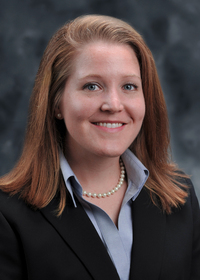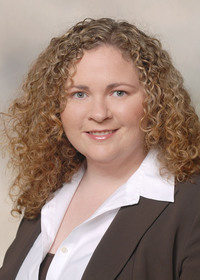Information Possibly Outdated
The information presented on this page was originally released on September 1, 2020. It may not be outdated, but please search our site for more current information. If you plan to quote or reference this information in a publication, please check with the Extension specialist or author before proceeding.
Limit family visits after bringing newborn home
STARKVILLE, Miss. -- Parents welcoming a newborn in the COVID-19 era face potentially tough decisions regarding family visits after delivery.
Newborns do not have fully developed immune systems, so they are more vulnerable to illness and serious symptoms if they get sick. A mother’s immune system is likewise compromised. Alisha Hardman, family life specialist with the Mississippi State University Extension Service, said pregnant women are at an increased risk for suffering more severe cases of COVID-19. They more frequently require hospitalization and are more likely to be placed on ventilators.
“Parents are being put in an impossible situation to balance the health and safety of their newborn with maintaining social and family bonds,” she said. “The risk of welcoming visitors is primarily exposing the newborn to COVID-19 or another illness such as the flu, while a risk of limiting visitors is the potential to cause strain or tension in family relationships.”
Lori Elmore-Staton, an assistant professor in the MSU School of Human Sciences, said it can be tricky to explain that people are not yet allowed to visit when they are eager to meet and hold the baby. Those who are allowed around the child should follow all safety requests of the parents. Each family will make slightly different decisions based on its current situation.
“We always want to be sure to keep newborns and new parents healthy, while also making sure that they feel supported,” Elmore-Staton said. “One of the most important considerations is to abide by the request of the new parents without giving them a hard time. It may be bothersome to change clothes, wash and sanitize your hands, and wear a mask, but the parents’ wishes must take priority.”
Hardman said parents can navigate hurt feelings by reminding extended family and friends that many pediatricians already recommend limiting a newborn’s exposure to people until they have completed their 8-week vaccinations. These vaccines protect children from deadly diseases and help build immunity.
“One thing I’ve shared with my family and friends is that, developmentally, it is not until 2 to 3 months that babies begin socially smiling and their personality usually begins to become more apparent,” Hardman said. “Everyone loves holding a newborn, but they’re going to be much more fun to interact with if visitors wait until they’re a bit older.”
Requiring the grandparents-to-be or other close relatives to quarantine for 10–14 days before visiting is not unreasonable, Hardman said.
“Asking family members to be tested for COVID-19 is likely unnecessary if they have been quarantining and carefully following health and safety practices such as engaging in physical distancing, wearing a mask, washing hands regularly and avoiding activities that increase risk for contracting the virus before they arrive,” she said. “When possible, have family stay outdoors and require that they wear a mask while holding the newborn. Do not allow visitors to kiss the newborn on the head, face or hands.”
Restrictions regarding visitors at the hospital will be out of the parents’ control and will vary in response to the COVID-19 conditions in the area.
“Many hospitals are allowing the partner to be present during delivery. However, often they are not permitted to leave the room or hospital once they have been admitted,” Hardman said. “It may be wise to prepare an overnight bag for the partner in addition to those necessities for mom and baby.
“Most hospitals are not allowing other family members to visit,” she added. “It’s important to keep in mind that this could change between now and delivery day, so it’s best to check the hospital’s website or call to see what the current restrictions are.”
The best substitute for acquainting extended family and friends to a newborn in person is using smartphone video chat or teleconferencing apps.
“This is a challenging time and not the ideal conditions for introducing your precious new bundle to family and friends. However, we do have the advantage of technology which allows us to connect in ways that were not possible even a couple of decades ago,” Hardman said. “In addition to conferencing technology, sharing videos and photos is another great option. While none of these will replace face-to-face connection, they are a great safe option to remain socially connected, even if you’re physically distanced.”









